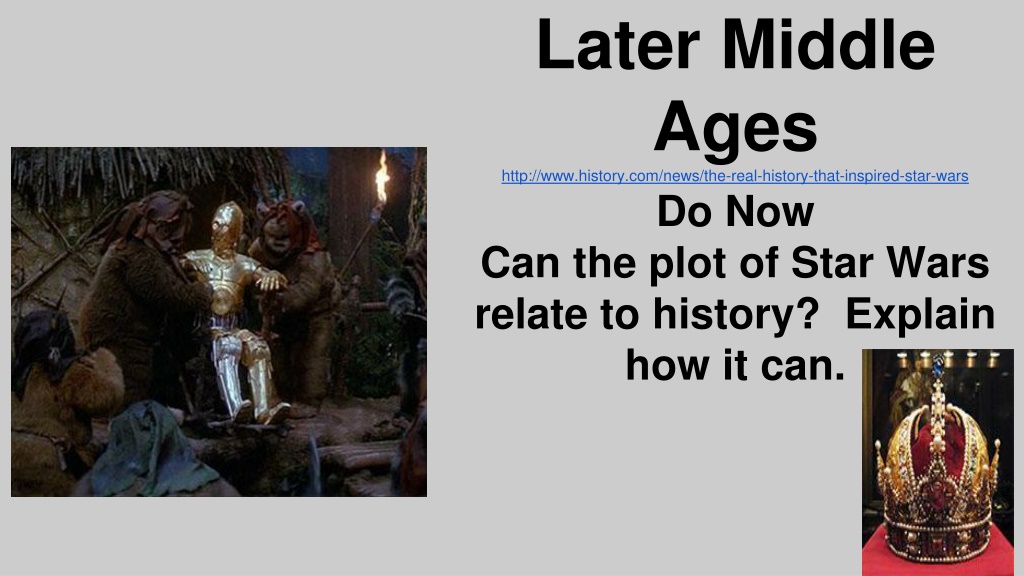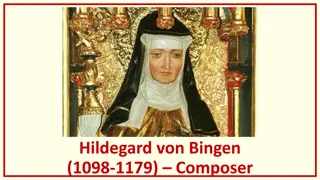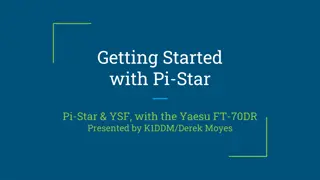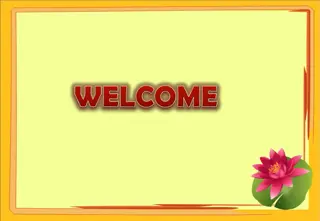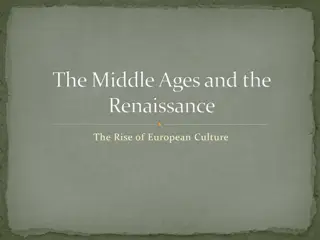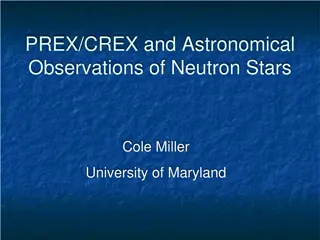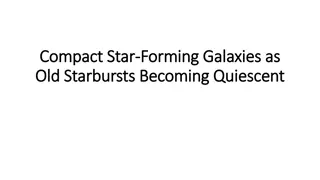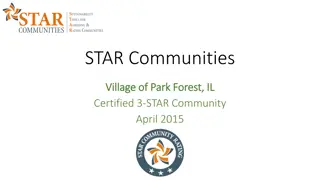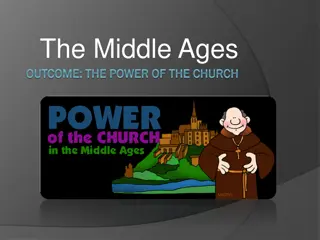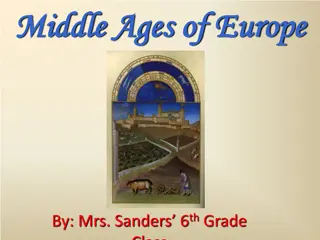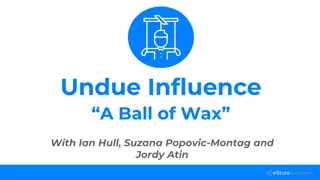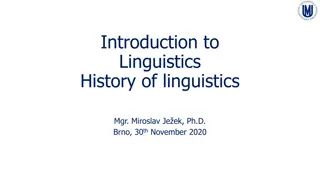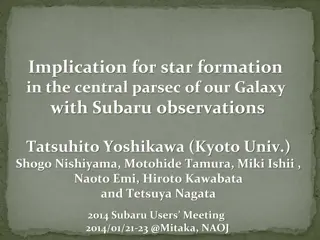Insights into the Middle Ages and Its Influence on Star Wars
Discover how the later Middle Ages, with its key events like the Crusades and the Hundred Years War, influenced the plot of Star Wars. Explore vocabulary terms, historical figures, and the spread of Christianity in Europe during the Middle Ages. This historical context sheds light on the societal structures and power dynamics that are mirrored in the epic Star Wars saga.
Download Presentation

Please find below an Image/Link to download the presentation.
The content on the website is provided AS IS for your information and personal use only. It may not be sold, licensed, or shared on other websites without obtaining consent from the author. Download presentation by click this link. If you encounter any issues during the download, it is possible that the publisher has removed the file from their server.
E N D
Presentation Transcript
Later Middle Ages http://www.history.com/news/the-real-history-that-inspired-star-wars Do Now Can the plot of Star Wars relate to history? Explain how it can.
Vocabulary Terms Excommunicate (524) (528) clergy (533) Heresy (546) Natural law (538) Parliament (541) (542) Black Death (543) Reconquista (547) Crusades Holy Land Magna Carta (540) Hundred Years War Bishop - a person who supervises local churches authority - the power to settle issues pilgrim - a person who travels to a sacred or religious place
As you watch this clip please take As you watch this clip please take notes for a discussion and quiz. notes for a discussion and quiz. https://www.brainpop.com/socialstu dies/worldhistory/middleages/
Do Now In your notebooks answer the following questions in complete sentence (If you don t remember refer to pages 502- 502) 1. Who were most important people in spreading Christianity throughout Europe? 2. How did missionaries and monks spread Christianity? 1. Monks, Missionaries, Popes 2. Missionaries traveled to spread Christianity, while monks built monasteries in remote locations where they taught about Christianity
In your notebooks (Google document) write the name of the countries # 1-5 continents A-E Oceans a-c 4 D 1 A E 2 5 3 C b a a B c
Map Quiz Name: Your Name Date: 2/4/16 Period: 1. 2. 3. 4. 5. A. B. C. D. E. a. b. c.
Later Middle Ages Overview During feudalism popes of the Roman Catholic Church and kings dominated society. The Crusades, the bubonic plague, and the Hundred Years War were important events that shook European society. These events also moved Europe slowly away from feudalism
Popes and Kings Popes and Kings Pages 524 Pages 524- -527 527 Objective: Students will be able to analyze the role of religion and Objective: Students will be able to analyze the role of religion and geography in unifying and centrally govern expanding territories of geography in unifying and centrally govern expanding territories of Europe with diverse populations. Europe with diverse populations. T Target Learning arget Learning - - I will learn how religion and politics were part of I will learn how religion and politics were part of European society in the Middle Ages. European society in the Middle Ages.
I. POPES AND KINGS A. Popes and Kings Rule Europe In the early Middle Ages, great nobles and their knights held a great deal of power. As time passed, though, this power began to shift. More and more, power came into the hands of two types of leaders, popes and kings. Popes had great spiritual power, and kings had political power. Together, popes and kings controlled most of European society. 1. The Power of the Popes In the Middle Ages, the pope was the head of the Christian Church in Western Europe. Since nearly everyone in the Middle Ages belonged to this church, the pope had great power. People saw the pope as God s representative on Earth. They looked to him for guidance about how to live and pray. The pope it was his duty to decide what the church would teach. From time to time, a pope would write a letter called a bull to explain a religious teaching or outline a church policy. In addition, the pope decided when someone was acting against the church.
If the pope felt someone was working against the church, he could punish the person. For serious offenses, the pope or other bishops could choose to excommunicate, or cast out from the church, the offender. This punishment was deeply feared because Christians believed that a person who died while excommunicated would not get into heaven. In addition to spiritual power, many popes had great political power. After the Roman Empire collapsed, many people in Italy looked to the pope as their leader. As a result, some popes began to live like royalty. They became rich and built huge palaces.
I. POPES AND KINGS A. Popes and Kings Rule Europe 1. The Power of the Popes a. Pope was responsible for providing guidance about how to live and pray b. he decided what the church would teach c. he explained religious teaching or outline of church policy in a letter called bull d. he decided when someone was acting against the church e. he could excommunicate or cast out from the church
Reading Check Questions Reading Check Questions Answer in complete sentences in your notebooks Answer in complete sentences in your notebooks 1. What were the duties and powers of the popes during the Middle Ages? The pope provided guidance about how to live and pray , he decided what the church would teach, he explained religious teaching or outline of church policy, and decided when someone was acting against the church. 2. What was the name of the letter written by a pope to explain a religious teaching or to outline a church policy? The letter written by a pope to explain a religious teaching of church policy is called bull.
Popes and Kings Activities Popes and Kings Activities Vocabulary - Complete the vocabulary terms Choose one of the following Activities Peasant Work: research the Schism of 1054 conduct a historical debate for or against the excommunication of the bishop of Constantinople. Knights Duty: Draw a venn diagram to compare the power of popes to the power of kings. Using your notes and Power of Kings on page 525 Pope Kings *Uncompleted work will be done tomorrow
Silent Read take and take notes (5 minutes) 2. The Power of Kings Europe in 1000 was divided into many small states. Most of these states were ruled by kings, some of whom had little real power. In a few places, though, kings had begun to take firm control of their countries. At this time, Europe s most powerful kings ruled England, France, and the Holy Roman Empire. In England and France, kings inherited their thrones from their fathers. At times, nobles rebelled against the kings, but the kings usually reestablished order fairly quickly. They maintained this order through alliances as well as warfare. Discuss notes with your group
Exit Ticket Main Idea Text Support My Words Popes and kings ruled Europe as spiritual and political leaders. What were the duties and powers of the popes during the Middle Ages? Response to question above:
I. POPES AND KINGS A. Popes and Kings Rule Europe 1. The Power of the Popes a. Pope was responsible for provided guidance about how to live and pray b. he decided what the church would teach c. he explained religious teaching or outline of church policy in a letter called bull d. he decided when someone was acting against the church e. he could excommunicate or cast out from the church 2. The Power of the Kings a. Europe was ruled by many small states/kingdoms b. Kings inherited their land/thrones from their father
The Power of Kings The Power of Kings Answer the following question with your group How did becoming king in England and France differ from how it was done in Holy Roman Empire? England and France inherited thrones while the Holy Roman Empire elected kings.
Do Now Answer the following questions in your notebooks 1. What caused the rise of feudalism in Europe? 2. What were the factors that caused the decline of feudalism in Europe?
B. Popes Fight for Power People of western Europe considered the pope the head of the church, people in eastern Europe disagreed. There, bishops controlled religious matters with little or no guidance from the pope. Beginning in the mid-1000s, however, a series of clever and able popes sought to increase their authority over eastern bishops. They believed all religious officials should answer to the pope. Pope Leo IX became pope in 1049. He argued that because the first pope, Saint Peter,had been the leader of the whole Christian Church, later popes should be as well. Despite Leo's arguments, many church leaders in eastern Europe, most notably the Byzantine Patriarch refused to recognize the supremacy of the pope. The pope responded by excommunicating him in 1054. This is known as the Great Schism. It is reflected in the cultural and political divisions between the Orthodox and Catholic parts of Europe today.
Leos decision created a permanent split within the church. Christians who agreed with the bishop of Constantinople formed the Orthodox Church. Those who supported Leo s authority became known as Roman Catholics. With their support, the pope became head of the Roman Catholic Church and one of the most powerful figures in western Europe.
B.Popes Fight for Power Western Europe considered the pope the head of the church but eastern European people disagreed. 1. Pope Leo IX believed that all Christians should answer to the pope, as the leader of the whole Christian church. 2. The bishop of Constantinople disagreed and wouldn t recognize his authority a. Pope Leo excommunicated him. b. Created a permanent split in the church. *The rest of the church became known as the Roman Catholic Church. The pope became one of the most powerful figures in western Europe. 8. Why did Pope Leo IX excommunicated the bishop of Constantinople?
C. Kings and Popes Clash As popes worked to increase their power, they often came into conflict with kings. For example, kings thought they should be able to select bishops in their countries. Popes, on the other hand, argued that only they could choose religious officials. In 1073 a new pope came to power in Rome, Pope Gregory VII. Trouble arose when Gregory disapproved of a bishop chosen by the Holy Roman Emperor Henry IV. Angry because the pope questioned his authority, Henry convinced Germany s bishops that they should remove Gregory as pope. In response, the pope excommunicated Henry and called for Henry to be overthrown. The fight over the right to choose bishops continued even after Henry and Gregory died. In 1122 a new pope and emperor reached a compromise. They decided that church officials would choola all bishops and abbots/priests
C. Kings and Popes Clash 1. Emperor Henry IV tried to get Pope Gregory removed -Excommunicated by Gregory and waited for days to be forgiven 2. Pope Gregory VII was angry and excommunicated Henry -By making him wait showed how powerful he was 3. Compromise of 1122 -popes, kings, bishops, priests 10. According to the compromise of 1122, list in order the most to least powerful?
Popes and Kings Activities Popes and Kings Activities Vocabulary Center - Flashcards or interactive notebook and Study Guide Critical Thinking - Peasants: research the Schism of 1054 conduct a historical debate for or against the excommunication of the bishop of Constantinople. Knights: Draw a venn diagram to compare the power of popes to the power of kings. Kings: Imagine you are a medieval resident of Constantinople create two political signs, either supporting or opposing the excommunication of the bishop of Constantinople. Writing - Review - Double Journal Worksheet
Popes and Kings Day Two Exit Ticket Study Guide 1-9 Vocabulary Terms 1-3 Main Idea Text Support My Words Popes fought for power, leading to a permanent split within the church. What did Pope Leo IX expect to gain by excommunicating the bishop of Constantinople? Response to question above:
